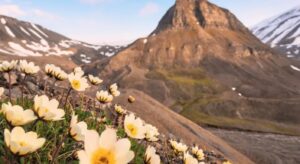 Arctic winters are undergoing a rapid and alarming transformation, becoming increasingly warm, wet, and unstable, as evidenced by spring-like thaws, rain, and meltwater observed even in February in regions like Svalbard, which is warming significantly faster than the global average. This shift disrupts traditional frozen conditions, impacting fieldwork and accelerating dangerous climate feedback loops through temporary lake formation, vanishing snow cover exposing bare earth, and increased biological activity. The profound changes affect carbon cycling, freeze-thaw patterns, and wildlife survival, with permafrost thaw releasing more greenhouse gases. Researchers highlight the urgent necessity for climate policy to adapt to these swift, potentially irreversible changes and call for substantial investment in comprehensive winter monitoring across the Arctic due to current data scarcity.
Arctic winters are undergoing a rapid and alarming transformation, becoming increasingly warm, wet, and unstable, as evidenced by spring-like thaws, rain, and meltwater observed even in February in regions like Svalbard, which is warming significantly faster than the global average. This shift disrupts traditional frozen conditions, impacting fieldwork and accelerating dangerous climate feedback loops through temporary lake formation, vanishing snow cover exposing bare earth, and increased biological activity. The profound changes affect carbon cycling, freeze-thaw patterns, and wildlife survival, with permafrost thaw releasing more greenhouse gases. Researchers highlight the urgent necessity for climate policy to adapt to these swift, potentially irreversible changes and call for substantial investment in comprehensive winter monitoring across the Arctic due to current data scarcity.
Source: Earth.Com
